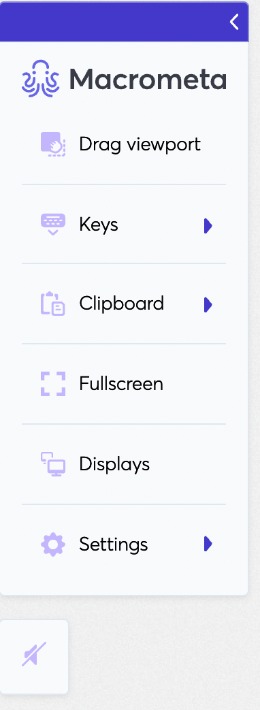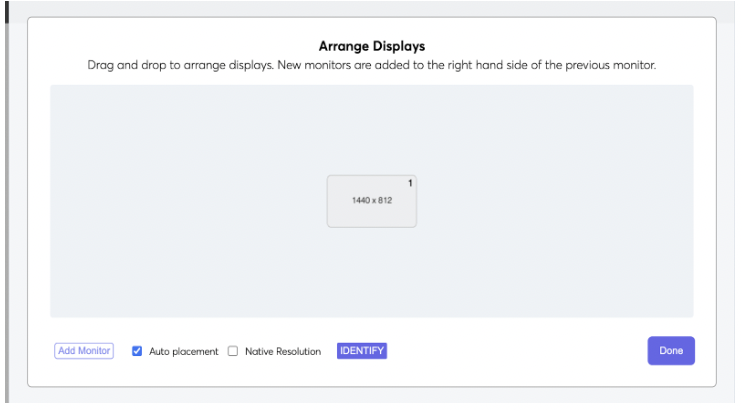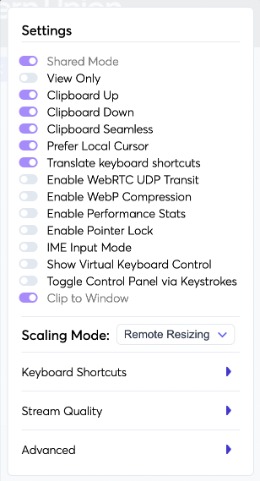Using the RBA control bar
A control bar icon appears on the left side of the screen for you to easily manage and interact with the remote browser.
To access the control bar,
Click the control bar icon on the left side of the browser to access the menu.

Below is an overview of each menu on the control bar and how to use them to enhance your browsing experience.
Drag viewport: This setting allows you to move the remote browser window around the screen when minimized.
Keys: The keys menu provides on-screen buttons for essential control keys such as Control, Alt, Tab, and the Esc key. This functionality is especially handy for mobile device users who don't have access to a full keyboard.
Clipboard: The clipboard feature allows text transfer between your local device and the remote browser. Text copied within the remote browser appears in this panel for easy access. This is not compulsory for the Chrome browser, as it has native clipboard integration that handles text efficiently.
Fullscreen: Full screen maximizes the remote browser to fill your entire screen, providing an immersive and distraction-free browsing experience. Use the Esc key to exit fullscreen mode.
USB: The USB menu displays all devices connected to your local device via USB. To connect a device to the remote browser, select it from the list and click Connect.
Display: This menu allows you to manage multiple monitors efficiently. Click the Display menu to add, remove, and arrange screens. New screens open in separate browser windows, which you can position on your local monitors. Use the Display menu to match the on-screen arrangement to your physical setup and adjust positions and sizes as needed.

Settings: The Settings menu lets you customize your remote browser further. Here, you can adjust various aspects to tailor the browser to your preferences and optimize your user experience.

a. View-only: This option restricts the remote browser to a read-only mode, preventing any write operations. Users can browse and view content without being able to modify or interact with elements.
b. Clipboard Up: Allows users to copy text from their local device and paste it into the remote browser.
c. Clipboard Down: Enables copying content from the remote browser and pasting it onto your local device.
d. Clipboard Seamless: This feature facilitates copying and pasting between your local device and the remote browser without noticeable delays or additional steps.
e. Prefer Local Cursor: Prioritizes using the local machine's cursor for display and interaction, providing a more consistent user experience.
f. Translate keyboard shortcuts: Automatically converts local keyboard shortcuts to the corresponding shortcuts in the remote browser, ensuring they function correctly within the remote environment.
g. Enable Performance Stats: This option displays real-time performance metrics of the remote browser at the top right corner of the screen. These metrics include an FPS counter, along with network and CPU stats, where each stat shows the current value and an averaged value over time. A lower value indicates higher resource constraints, helping to identify if performance bottlenecks are due to server-side CPU or network issues.
h. Enable Pointer Lock: Constrains the cursor within the remote browser window, providing better control during use. To release the cursor, press the escape key.
Audio: Click the audio icon to enable or disable audio output from the remote browser.